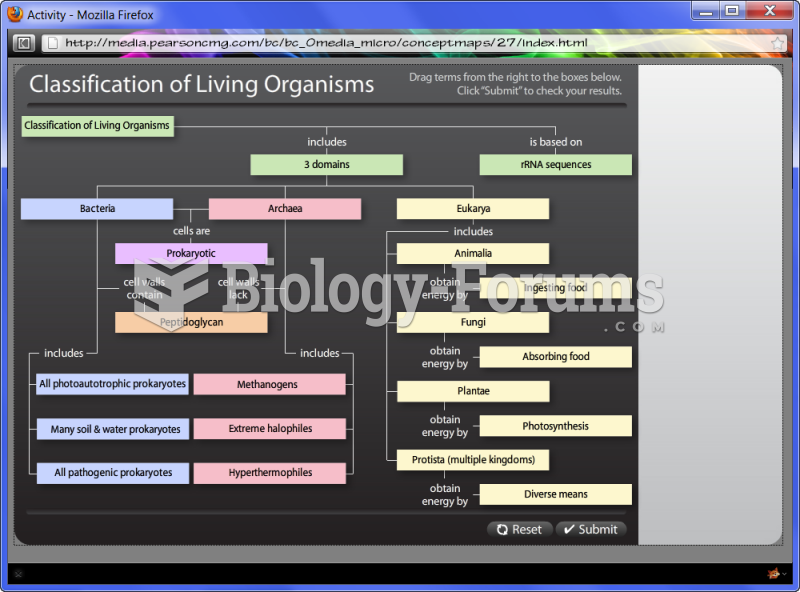|
|
|
Did you know?
There are more bacteria in your mouth than there are people in the world.
Did you know?
Alzheimer's disease affects only about 10% of people older than 65 years of age. Most forms of decreased mental function and dementia are caused by disuse (letting the mind get lazy).
Did you know?
According to research, pregnant women tend to eat more if carrying a baby boy. Male fetuses may secrete a chemical that stimulates their mothers to step up her energy intake.
Did you know?
Cyanide works by making the human body unable to use oxygen.
Did you know?
It is difficult to obtain enough calcium without consuming milk or other dairy foods.






